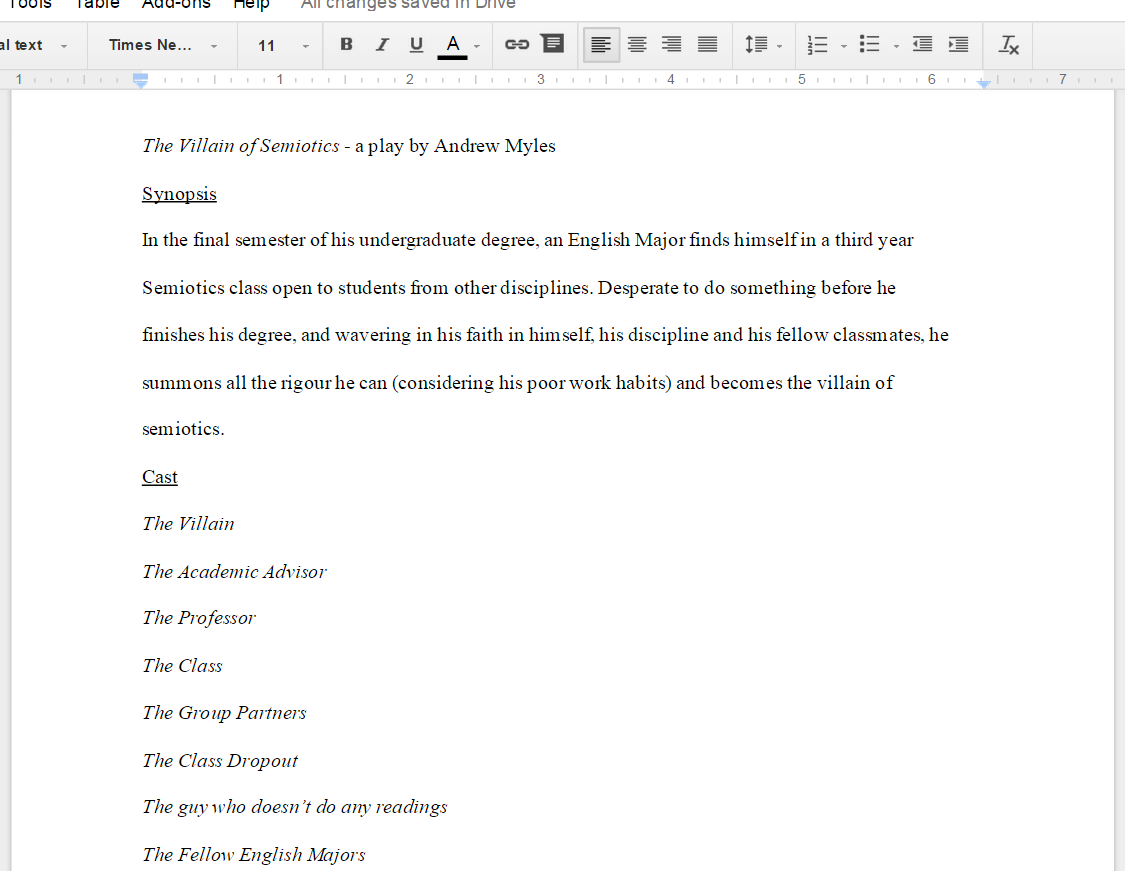Saturday, November 29, 2014
Wednesday, November 26, 2014
If writing is exhausting, then reading is scattering
"But reading and writing must not be dissociated; one ought to “have alternate recourse” to those two pursuits and “blend one with the other.” If too much writing is exhausting (Seneca is thinking of the demands of style), excessive reading has a scattering effect: “In reading of many books is distraction.” By going constantly from book to book, without ever stopping, without returning to the hive now and then with one's supply of nectar —hence without taking notes or constituting a treasure store of reading— one is liable to retain nothing, to spread oneself across different thoughts, and to forget oneself. "
http://foucault.info/documents/foucault.hypomnemata.en.html
Foucault, Michel. "Self Writing." In Dits et écrits, pp. 415-430. Vol. IV., 1983.
WHY?
"[. . .] and then, when I'm not really listening, [. . .] someone asks, simply, not in relation to anything, 'Why?' and though I'm very proud that I have cold blood and that I can keep my nerve and do what I'm supposed to do, I catch something, then realize it: Why? and automatically answering, out of the blue, for no reason, just opening my mouth, words coming out, summarizing for the idiots: 'Well, though I know I should have done that instead of not doing it, I'm twenty-seven for Christ sakes and this is, uh, how life presents itself in a bar or in a club in New York, maybe anywhere, at the end of the century and how people, you know, me, behave, and this is what being Patrick means to me, I guess, so well, yup, uh . . .' and this is followed by a sigh, then a slight shrug and another sigh, and above one of the doors covered by red velvet drapes in Harry's is a sign and on the sign in letters that match the drapes' color are the words THIS IS NOT AN EXIT."
-B.E.E, American Psycho
-B.E.E, American Psycho
Wednesday, November 19, 2014
Tuesday, November 18, 2014
An Abundance of What?
A family's capacity to foster 7 kittens and their mother, in addition to its own cat, dog, and bird, indicates an abundance of resources for developing and sustaining life. The chaos that ensues brings such an abundance into question: should we really have fostered these cats or not? How many cats does one need? How many cats need how many of us? They tear shit up; they seem to threaten abundance and prod at its limits. Their presence reminds me of the foundations on which our abundance rests, which seem shaky. What began as the necessity of survival grew over the years with career and opportunity and circumstance and TV. Now everyone occupies different rooms, and while out shopping, no one moderates the cat on cat interaction. New boots for a very cold winter. Accusatory disgust at such isolated events, and no time or place to sit down together and talk or think. A modern household which seems designed around the TV room. Come home and go straight to the couch. At least the cats stop running around and shredding to cuddle with each other.
Abundance, but now for what - more abundance? It feels like we are somewhere out there, far away, with an abundance of cats and resources to support them, but something else seems to be missing - some sense of wholeness or unity, and yet we operate at a stressful emotional capacity - Add more. Anger over the ripped ottoman and reupholstered, antique chairs. The mystery of the bank account.
Abundance, but now for what - more abundance? It feels like we are somewhere out there, far away, with an abundance of cats and resources to support them, but something else seems to be missing - some sense of wholeness or unity, and yet we operate at a stressful emotional capacity - Add more. Anger over the ripped ottoman and reupholstered, antique chairs. The mystery of the bank account.
Turn it around baby
spend more time with me
it's getting insane I know
let it not be true
I'm under pressure
SEMIOTICS OF THE SQUAT CIRCA 1962
". . . squatting on the ground denotes an absence of needs, a turning in on oneself. The body is rounded and compact as though expecting nothing from the world. Every activity which might require reciprocity is renounced. Since nothing is done, there is nothing for anyone to react to. A man who sits in this attitude appears peaceful and contented; no one fears violence from him. He is contented, either because he has all he needs, or because he makes do with what he has, however little. The squatting beggar proclaims his readiness to accept whatever he may be given; he makes no distinctions and is content with anything.
. . .
But squatting . . . also implies an acceptance of everything which may happen. If he were a beggar, the rich man would continue to sit in the same way and, in doing so, would say in effect that he was still the same man. The posture contains both wealth and poverty, and this, together with what we said about the absence of needs, is why it has become the posture of contemplation, familiar to all who know the East. The man who adopts it has freed himself from he world. He reposes in himself and Burdens no-one."
-Canetti, E. "Human Postures and Their Relation to Power" from Crowds and Power, pp. 393-394.
Subscribe to:
Posts (Atom)



